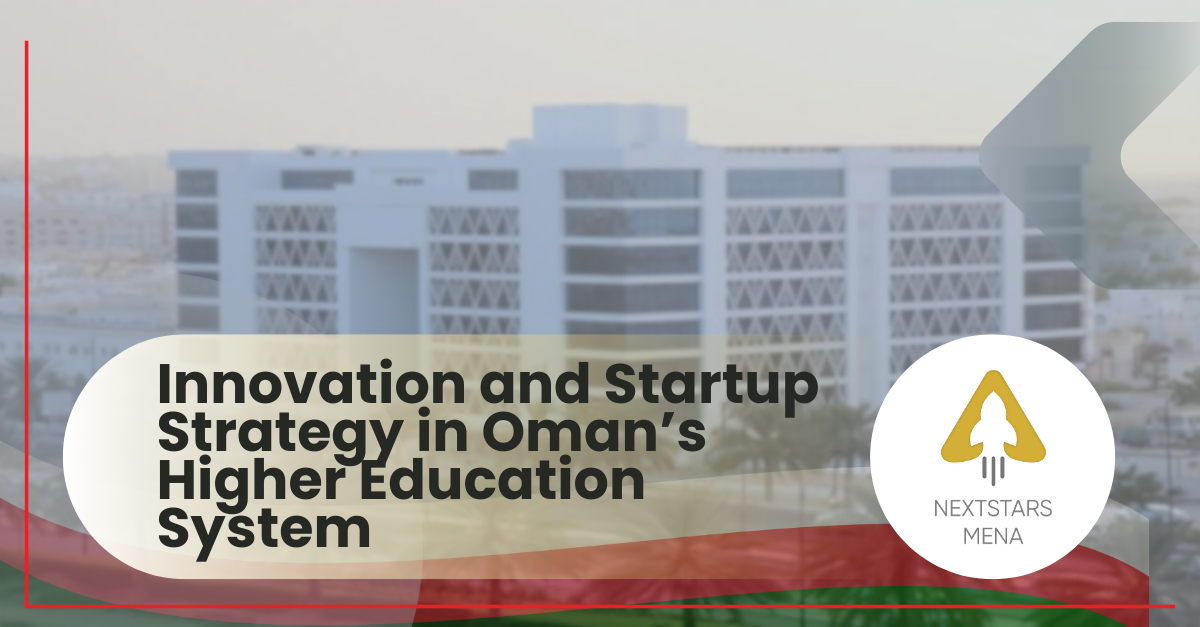Muscat, Oman – Higher education institutions in the Sultanate are key to driving innovation under Oman Vision 2040.
Introduction: Vision 2040 and the Push for Innovation in Higher Ed
Oman Vision 2040 places innovation and economic diversification at the heart of the nation’s future. A central pillar is building a knowledge-driven economy less reliant on oil, which in practice means aligning education with research, entrepreneurship, and market needs[1][2]. The Ministry of Higher Education, Research, and Innovation (MoHERI) was formed to spearhead this integration, reflecting a national mandate for universities to become engines of innovation. Through MoHERI, new programs fund research and help commercialize ideas, fostering a culture of innovation on campuses[3]. Innovation parks and incubators are being launched with private-sector partners to mentor startups and turn student projects into marketable products[4]. This momentum has already led to a burgeoning startup scene in Muscat and a rise in Omani tech SMEs[5]. The ambition is clear: by 2040 Oman aims to rank among the top global education systems, with universities producing graduates equipped for a high-tech, entrepreneurial economy[6].
Yet, translating Vision 2040’s lofty goals into campus reality is a work in progress. University leadership in Oman faces the challenge of bridging traditional academia with real-world startup ecosystems. This report-style analysis takes a frank look at how Sultan Qaboos University (SQU), the University of Technology and Applied Sciences (UTAS), German University of Technology in Oman (GUtech), and others are promoting innovation, where clear gaps remain, and what needs to change for Oman’s higher education to truly ignite a startup culture. The tone is intentionally sharp and grounded in startup experience – cutting through any institutional fluff – to offer insight for Omani university leaders and innovation stakeholders.
University Initiatives Driving Innovation
Oman’s major higher education institutions have begun rolling out strategies to promote innovation and entrepreneurship among students and faculty. In line with Vision 2040’s goals, universities are establishing centers, departments, and programs to nurture startups and practical skills. Below we highlight key initiatives at SQU, UTAS, and GUtech, which illustrate both promising progress and the foundation for an innovation ecosystem.
SQU: From Research to Startups
As Oman’s flagship university, Sultan Qaboos University (SQU) has taken a leading role in innovation. SQU established an Innovation & Technology Transfer Center in 2018 to transform research into products and foster university spin-offs[7][8]. This center provides training, mentorship, industry linkages, incubation space, and intellectual property support – all under one roof – to help students and faculty turn ideas into startups[9][10]. It aligns with both SQU’s strategic plan (2016–2040) and national objectives by emphasizing innovation as a path to economic diversification and job growth[11].
Importantly, SQU is partnering with government on high-impact programs. In early 2025, MoHERI and SQU launched the Itlaq Innovation Accelerator, an intensive 6-month training camp for innovators and startup founders[12]. Itlaq’s mission is to bridge the gap between academia and industry, accelerating R&D projects into viable businesses through technical and commercial training[12]. The program connects participants with expert mentors, investors, and industry partners, aiming to produce innovation-driven startups ready for market[13]. Such collaboration underscores that SQU is not only conducting research in labs but also actively pushing those innovations into real-world application and enterprise.
SQU’s ecosystem is already yielding results. For example, a student-led startup project at SQU, “Nabatenio,” recently developed one of Oman’s first plant-based meat alternatives[14]. Incubated under SQU’s Scientific Incubator Program and funded by MoHERI, this project took a lab concept to a commercial-ready product (a 100% plant-derived meat substitute) aimed at local markets[15]. The founder, an SQU student, combined scientific research with entrepreneurial drive – exactly the kind of outcome Oman’s innovation strategy envisions. Success stories like Nabatenio demonstrate the potential when academic research is effectively nurtured and supported into a startup venture.
UTAS: Applied Sciences Meet Entrepreneurship
The University of Technology and Applied Sciences (UTAS) – with campuses across Oman – focuses on marrying technical education with entrepreneurship. UTAS-Muscat’s Partnership and Entrepreneurship Department (P&E), established in 2020, plays a strategic role in advancing Oman’s knowledge economy by fostering innovation and industry collaboration[16]. The department explicitly aligns with Oman Vision 2040 and the nation’s diversification goals[17]. At its core is a mission to equip students with an entrepreneurial mindset and practical skills. UTAS achieves this through hands-on opportunities like hackathons, startup competitions, bootcamps, and innovation challenges that push students to solve real-world problems with market-driven solutions[18].
Beyond student competitions, UTAS’s P&E department runs workshops, mentorship programs, and networking events, integrating entrepreneurial thinking across disciplines[19]. It also forges partnerships with government agencies, private sector companies, and investors to strengthen academia-industry linkages[20]. This ensures UTAS isn’t just a place of learning, but a launchpad for enterprise, where ideas can flourish into startups with the support of a broader ecosystem. By proactively engaging external stakeholders, UTAS is helping to break the silo between classrooms and the business world. In practice, this has led to initiatives like student startup showcases and collaborations such as a recent UTAS student project converting coffee waste into eco-friendly printer ink – a sustainable innovation gaining attention for its practical benefits. UTAS exemplifies how an applied sciences university can pivot to become a catalyst for entrepreneurship, shaping graduates who are job creators rather than job seekers.
GUtech: International Perspective and Incubation
The German University of Technology in Oman (GUtech) brings an international approach to innovation, leveraging its affiliation with RWTH Aachen University in Germany. GUtech’s Entrepreneurship and Educational Services (EES) Department focuses on upskilling students and the community in entrepreneurship, with a mission to encourage creative thinking and startup ventures among students, alumni, and faculty[21]. The vision is to foster a sustainable ecosystem of creativity and entrepreneurship on campus[22].
A standout initiative is the GUtech Start-up Hub (GUStartHub), a business incubator in Halban that provides students and graduates opportunities for commercializing tech-based business ideas[23]. The incubator offers a nurturing environment with mentorship, networking, and resources to help startups thrive[23][24]. GUtech’s objectives are clear: enable students to start their own businesses, provide resources (space, guidance, networks), connect them with industry experts and government support, and ultimately turn innovative ideas into marketable products[25]. The university regularly hosts bootcamps, workshops, and pitch competitions as well, embedding practical entrepreneurial skills in the student experience[26][27].
Moreover, GUtech actively supports startups in strategic sectors for Oman’s future. For instance, the university has backed student and faculty startups focusing on low-carbon technologies and green innovation, aligning with Oman’s sustainability goals[28]. GUtech also hosts a local chapter of Startup Grind, organizing events to inspire and connect entrepreneurs, which helps expose students to global startup culture and success stories[29]. Through these efforts, GUtech infuses global best practices into the Omani context – from German academic rigor to Silicon Valley’s startup ethos – aiming to produce graduates who can compete and innovate on the world stage.
What’s Working So Far
Collectively, these examples show that Oman’s higher education system is taking concrete steps to build an innovation pipeline. Key elements of progress include:
- Dedicated Innovation Centers and Departments: From SQU’s Technology Transfer Center to UTAS’s Entrepreneurship Department and GUtech’s Start-up Hub, universities are creating institutional homes for entrepreneurship. These centers provide training, incubation, and mentorship, signaling to students that innovation is a priority, not an extracurricular afterthought.
- Government-University Partnerships: The alignment of MoHERI programs like Itlaq with university initiatives is a strong positive. Backing from Oman’s government (financially and strategically) provides resources and legitimacy to campus startups[12][13]. National funds and competitions encourage students to tackle Oman’s development challenges with new ideas.
- Student Success Stories: Early wins such as student-founded startups (e.g. SQU’s Nabatenio plant-based meat project) motivate others and show that with the right support, Omani students can launch ventures addressing real market needs[14][30]. These stories also help shift mindsets by providing local proof-of-concept that entrepreneurship can succeed.
- Alignment with National Vision: Universities are explicitly tying their strategies to Oman Vision 2040’s themes of innovation and diversification[17]. This top-down and bottom-up alignment ensures everyone is moving in the same direction. Notably, Oman’s Minister of Higher Education has emphasized how institutions are now “aligning academic programs with job market and industry needs” at national and international levels[2]. There is a growing culture of research excellence and global collaboration in campuses, as evidenced by multiple Omani universities climbing regional and international rankings[31][32].
These developments are building a foundation upon which an innovation-driven higher education system can grow. However, despite these positive trends, gaps and disconnects remain that must be frankly addressed if Oman’s universities are to truly become incubators of world-class innovation.
Where the Disconnects Lie: Gaps in Connecting Academia to Startups
For all the progress, university leaders recognize that significant disconnects still hinder the full integration of Oman’s higher education with the startup ecosystem. Many graduates continue to find that their academic experience falls short of preparing them for the realities of entrepreneurship and rapidly evolving global industries. Key gaps include:
- Curriculum and Skills Gap: A persistent issue is that university curricula have traditionally been theory-heavy and slow to adapt to market changes. Courses often lag behind the fast pace of technology and innovation. As one local commentator noted, academic programs must be dynamic and continuously updated to reflect market needs, integrating technology, sustainability, and data analytics even into traditional fields[33][34]. While top universities worldwide swiftly adapt, some Omani programs remain siloed in lecture halls with limited practical project work. Elements like creative thinking, risk management, and opportunity recognition are not yet universally embedded across disciplines, leaving graduates with knowledge but not the mindset to identify and act on new business opportunities[35].
- Limited Industry Exposure: Despite improvements, not all students get meaningful exposure to real-world business and startup environments during their studies. Internships and industry collaborations are not yet a standard, guaranteed part of every degree. Many employers still report difficulty finding graduates with necessary practical skills, despite the abundance of degree holders[36]. The traditional academic focus on exams and theory means students may graduate without ever having worked on a project with direct industry mentorship or without attempting a venture of their own. This disconnect leaves new graduates less prepared to innovate or to understand the nuances of starting and running a business.
- Cultural and Attitudinal Barriers: Omani society highly values stable employment – historically in the public sector – and this cultural norm affects student ambitions. The local culture has been characterized as risk-averse, with most Omanis favoring government jobs seen as safe and prestigious[37]. Entrepreneurship, on the other hand, is perceived as risky with no guaranteed payoff. As a result, even when students have entrepreneurial ideas or positive attitudes towards innovation, relatively few actually pursue launching startups after graduation. Many do not find sufficient reason to take the leap of faith into a startup, especially when a comfortable job offer is available[37]. Changing these mindsets is a slow process; universities need to actively promote success stories and offer assurances (such as entrepreneurship as a viable career path, or even university-supported startup leave programs) to normalize taking calculated risks.
- Global Best Practices Integration: There is also a disconnect between local practices and cutting-edge global innovation trends. Omani universities could better integrate global best practices – such as agile product development, design thinking, and international networking – into their teaching and incubator programs. While Oman has begun coding academies and technical training centers in partnership with industry[38], more could be done to connect students with global innovation hubs. For instance, few Omani student startups participate in international accelerator programs or global competitions. There is untapped potential in establishing exchange programs or partnering with leading foreign universities and incubators so that Omani students and faculty regularly interface with Silicon Valley, European innovation labs, or Asian tech ecosystems. Without this exposure, campus initiatives risk reinventing the wheel or remaining insular. Global integration would help Omani startups benchmark against world-class standards and inject fresh ideas into the local ecosystem.
- Early-Stage Funding and Mentorship: Another gap lies in the funding and mentorship available to campus-born startups. Seed funding for student projects in Oman is still limited; universities often cannot provide significant capital, and the local VC scene, while growing, is nascent. Government funds (like the Oman Future Fund and Oman Technology Fund) tend to focus on later-stage startups or broader initiatives[39][40]. This leaves some student entrepreneurs in a tough spot – they have ideas and prototypes but struggle to secure the small seed investments needed to launch. Mentorship from experienced entrepreneurs can likewise be scarce. Oman’s pool of veteran startup founders is relatively small (given the young ecosystem), so finding enough mentors to coach student teams is a challenge. Universities have to rely on a handful of faculty or import mentors from abroad. Without robust mentorship and funding, many student ideas stall at the prototype stage and never develop into viable companies.
In sum, Oman’s higher education system is caught between an old paradigm of academic isolation and a new paradigm of entrepreneurial integration. The will to change is evident, but overcoming cultural inertia, curriculum rigidity, and resource constraints will require concerted action. The next section outlines what needs to change to truly plug Omani universities into the real-world startup environment and global innovation circuit.
What Needs to Change: Strategies for Bridging the Gap
To transform vision into reality, Omani universities must accelerate reforms and adopt bold strategies to bridge academia with the startup world. The following key changes are recommended for university leadership and innovation stakeholders:
- Infuse Entrepreneurship into the Curriculum: Make innovation a core part of education rather than a side activity. This means introducing practical entrepreneurship training in all disciplines – from engineering to business to liberal arts. Students should learn by doing: solving real problems, building prototypes, and developing business models as part of coursework. Capstone projects could be structured as startup ventures. Encouraging multidisciplinary teams to work on innovation challenges will mirror real startup team dynamics. Curricula must be reviewed annually with industry input to keep content cutting-edge and aligned with fast-moving fields[33].
- Strengthen University-Industry Collaboration: Every university should institutionalize partnerships with businesses, startups, and government agencies. This can include expanding internship and co-op programs so that every student graduates with hands-on industry experience. Faculties can invite industry experts and entrepreneurs as adjunct lecturers or entrepreneurs-in-residence. Joint research and commercialization projects should be incentivized – for example, faculty promotions could consider patents or startup involvement alongside publications. Advisory boards with private sector leaders can ensure academic programs stay relevant to market needs[41]. The goal is a two-way flow: industry provides guidance and opportunities to universities, and universities supply a pipeline of talent and innovation to industry.
- Cultivate a Pro-Entrepreneurship Culture: University leadership must take the lead in shifting mindsets on campus toward valuing innovation and risk-taking. This includes celebrating student startup attempts (even those that fail) as learning experiences, and showcasing alumni entrepreneurs as role models. Career centers should present entrepreneurship as a viable path, on par with corporate or government jobs. Universities could offer safe spaces for risk: for instance, a program allowing students to take a year off (or right after graduation) to work on a startup idea with a guaranteed option to return to studies or jobs if it doesn’t work out. By normalizing the startup path and reducing the fear of failure, more graduates will dare to try new ventures. Over time, as a few high-profile Omani startup successes emerge, the cultural resistance will diminish – but that success requires today’s students to be bold.
- Leverage Global Networks and Programs: Omani institutions should proactively plug into global innovation networks. This could involve sending student startup teams to international competitions (like the Microsoft Imagine Cup or MIT Arab Startup Competition), partnering with foreign accelerators, or hosting joint hackathons with universities abroad. Faculty and students would benefit from exchange programs focused on innovation – e.g. visiting Silicon Valley incubators or Shenzhen tech hubs. Additionally, adopting global best practices such as lean startup methodology and design thinking workshops (perhaps with trainers from leading global programs) will raise the caliber of projects. Benchmarking against global standards ensures Omani incubators and accelerators cultivate globally competitive startups, not just local champions.
- Boost Early-Stage Funding and Mentorship: Bridging the funding gap for student entrepreneurs is critical. Universities, perhaps in partnership with government or local investors, could establish dedicated seed funds or micro-grant programs for student-led startups. Even small grants (e.g. \$5k–\$20k) can be life-changing at the prototype stage. This should be coupled with expanding mentorship: tapping into the diaspora of successful Omani entrepreneurs abroad, engaging regional startup networks, and leveraging experienced founders in the MENA region to mentor Omani student teams (even if virtually). Creating a structured mentorship program, where every incubated startup is matched with an industry mentor, will provide much-needed guidance. The presence of seasoned advisors helps startups navigate challenges and attract further investment.
- Accountability and Outcome Tracking: Finally, universities should set clear KPIs for innovation outcomes – for example, number of student startups formed, funding raised by campus startups, students participating in incubator programs, patents filed or products commercialized by graduates. Tracking and publishing these metrics yearly (alongside traditional academic metrics) will keep the focus on results. It also encourages healthy competition between institutions to create the most vibrant startup culture. Reward systems for faculty and departments that excel in innovation can incentivize the whole university to prioritize this agenda.
NextStars Alpha: A Case of Bridging Education and Startup Life
One illustrative example of innovative academia-industry integration comes from abroad – the NextStars Alpha program. NextStars Alpha is an entrepreneurship program designed for high school and university students, run in partnership with CESTAR College in Canada[42]. It offers young aspiring founders a chance to experience the thrill of startup life while still in school, learning directly from seasoned entrepreneurs. The program features hands-on workshops, real-world startup simulations, one-on-one mentorship, and pitch competitions, all within a supportive educational environment[43][44]. Students emerge not just with theoretical knowledge, but with practical startup skills and a network of industry contacts.
The success of NextStars Alpha in Canada – where it has equipped a new generation of founders with the know-how to build successful businesses – provides a light case study for Oman. It shows how academic institutions can collaborate with specialized venture programs to give students practical exposure to global best practices in entrepreneurship. An Omani equivalent of the Alpha program, tailored to local context and perhaps run in collaboration with a forward-thinking college or international partner, could significantly enhance the startup readiness of Omani graduates. The key takeaway is that experiential learning (through programs like Alpha) can complement formal education, producing graduates who are not only job-ready but startup-ready. University leaders in Oman might consider piloting similar academy-industry hybrid programs to accelerate the learning curve of future entrepreneurs.
Conclusion: From Campus to Commercial Success
Oman’s higher education system stands at a pivotal crossroads. The nation’s vision for 2040 has cast universities in the role of innovation engines, tasked with producing the ideas, talent, and startups that will power a diversified economy. The early steps taken – new innovation centers, accelerator programs, and industry partnerships – are encouraging and have already yielded pockets of success. Oman’s young, tech-savvy population (over 60% under 30) is an asset brimming with entrepreneurial potential[45].
However, realizing that potential requires frank acknowledgement of the gaps and a commitment to bold changes. University leaders must push beyond comfort zones: tearing down silos between departments and industries, rewriting curricula for the 21st century, and actively encouraging their students to venture into uncharted territory. This is not about abandoning academic rigor, but about balancing knowledge creation with practical innovation[46]. It’s about ensuring that a four-year degree in Oman delivers both a strong intellect and the ability to apply it creatively in the marketplace.
If Oman’s universities can effectively connect students to real-world startup environments and global innovation networks, the payoff will be immense. Graduates will not only find meaningful employment; many will create jobs and solutions that drive the country forward. The disconnects – between classroom and market, between local mindset and global practice – can be overcome by the collective will of educators, policymakers, and industry partners aligning towards this common goal. The tone for this journey must remain sharp and experience-driven: less focus on glossy brochures and more on tangible outcomes and lessons from actual startup ventures.
In the end, innovation cannot be willed into existence by strategy documents alone – it must be cultivated through action, experience, and sometimes failure. Oman’s higher education stakeholders have the opportunity to foster an environment where taking initiative and experimenting with new ideas is the norm, not the exception. By implementing the changes outlined above and learning from successful models, Oman can transform its campuses into launchpads for the next wave of Omani startups. The vision of an innovation-led economy will move from policy paper to reality, fueled by universities that genuinely prepare students to be creators and innovators. For a country with Oman’s ambitions, nothing less will suffice, and the time to act is now.





